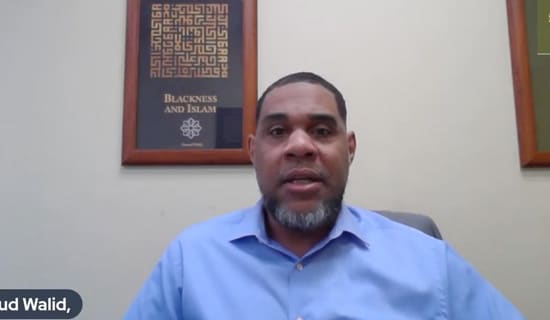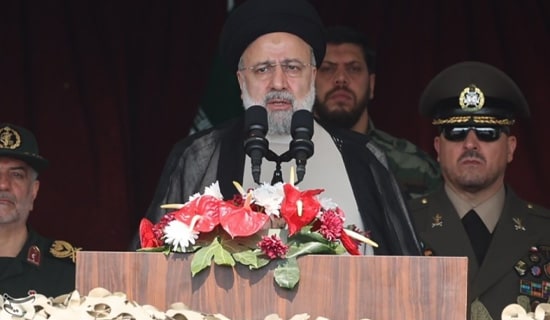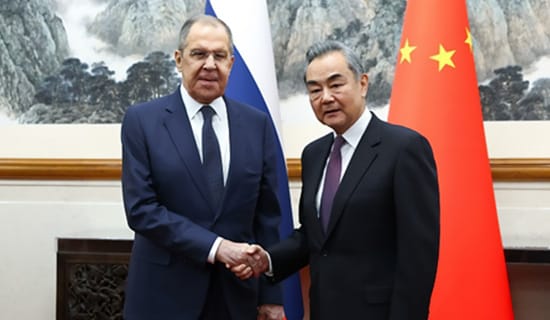Russia This Week is a weekly review by the MEMRI Russian Media Studies Project, covering the latest Russia-related news and analysis from media in Russia, the Caucasus, Central Asia, and Eastern Europe.
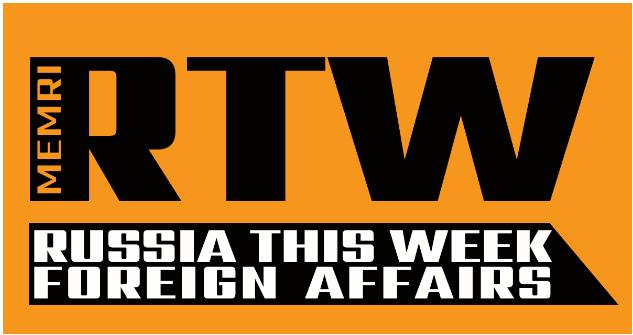
Photo Of The Week

Johannesburg is hosting the 10th BRICS Summit. From the right: President of Russia Vladimir Putin, President of Brazil Michel Temer, President of South Africa Cyril Ramaphosa, Prime Minister of India Narendra Modi, President of China Xi Jinping.
(Source: Kremlin.ru)
Quote Of The Week
Commenting on the BRICS summit in Johannesburg (25–27 July 2018), Georgy Toloraya, Executive Director of the Russian National Committee on BRICS research, wrote:
"BRICS is a global organization. If they ask, 'What BRICS is about?' I will answer: 'BRICS is about the world order.' These five leading ascendant powers could create a world order that will be more just and balanced than what we see now.
"Do we have to expand this format, to include new countries? We will not go along this path yet, but what we see in the BRICS+ format, which is involving the largest countries that are not the group’s members, but show interest to it, is a significant step towards increasing the BRICS value and making this union a representative of the greater part of humanity."
(Valdaiclub.com, July 25, 2018)
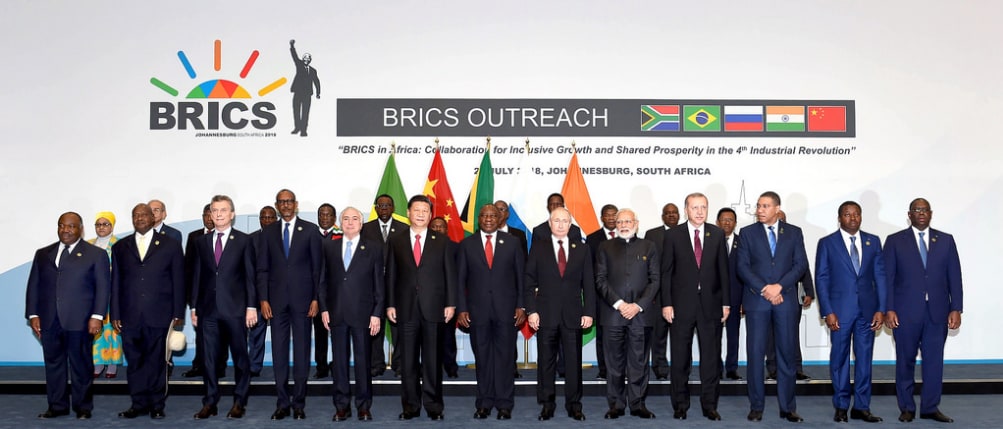
(Source: Brics2018.org.za)
In The News:
10th BRICS Summit
Joint Statement: We Underscore The Importance Of An Open World Economy
In the Johannesburg Summit Declaration, the BRICS leaders stated: "We express concern at the spillover effects of macroeconomic policy measures in some major advanced economies…
"We recognize that the multilateral trading system is facing unprecedented challenges. We underscore the importance of an open world economy."
(Read the full text of BRICS Summit Johannesburg Declaration)
Putin: The Summit Sent A Powerful Signal In Favor Of Preserving The WTO, Against Protectionism And Changing The Rules Of World Trade
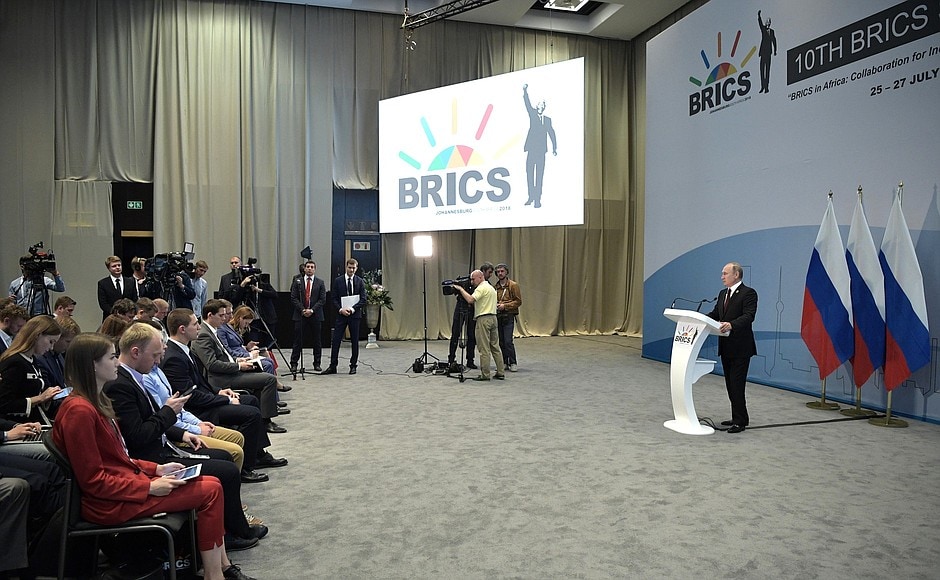
(Source: Kremlin.ru)
On June 27, Russian President Vladimir Putin delivered a statement to the press, following the two-day BRICS summit in Johannesburg.
Putin: "… To begin with, this is our 10th summit meeting. The main subjects we discussed included resistance to unilateral approaches in global affairs, the protection of multilateralism, and the use of the advantages of the fourth digital industrial revolution.
"We endorsed the Johannesburg Declaration that is aimed against economic sanctions and the use of force in violation of the UN Charter. It is also designed to prevent an arms race in outer space, support the Astana process on a settlement in Syria and preserve the Joint Comprehensive Plan of Action.
"The declaration includes the Russian initiatives on drafting an agreement on IT and communication technology, forming a platform for energy research and establishing a women’s business alliance.
"This new Russian initiative came about spontaneously, to be honest, but was enthusiastically backed by the participants. It deals with BRICS cooperation in culture, sport and cinematography. The participants even endorsed a sketch of the prize to be awarded at the BRICS film festival that we planned to organize and hold in the future.
"The summit sent a powerful signal in favor of preserving the WTO, against protectionism and changing the rules of world trade. Inter-governmental memorandums were signed on cooperation in regional aviation and environmental protection, and an agreement on establishing a new Development Bank office in Sao Paulo, Brazil.
"The united session of the outreach BRICS Plus has just ended or is about to end. The themes are also known – consolidation of BRICS standing in the world and development of cooperation in Africa. BRICS has been supported by multilateral international associations.
"As you may know, the summit coincided with Nelson Mandela’s centenary. He defended the principles of equality, dignity and justice. These are the principles that underlie BRICS activities.
"I also had bilateral meetings with the presidents of South Africa, Argentina, Angola, Turkey, Zambia, the People’s Republic of China, and the Prime Minister of India, and also contacts with the leaders of Zimbabwe, Togo and other participants in the recent BRICS outreach meeting. This is a very general outline of the results and subjects that were discussed. If you have any questions, I will try to answer them."
(Kremlin.ru, July 27, 2018)
Russian Economic Development Minister Oreshkin: BRICS Members Share The Same Opposition To The Aluminum And Steel Tariffs
Russian Economic Development Minister Maxim Oreshkin said: "There are disagreements on many issues between BRICS members, but when it comes to general global trade principles, they see eye-to-eye on the issue. We virtually share the same opposition to the aluminum and steel matter and took retaliatory measures against the US under WTO rules."
(Tass.com, July 25, 2018)
SUPPORT OUR WORK

Chinese Diplomat Sun Xiao: No To Protectionism
Following the BRICS Business Council Forum, Sun Xiao, director general of the China Chamber of International Commerce's Multilateral Cooperation Department, said:
"We requested our leaders to oppose all forms of protectionism…
"Economic globalization has suffered a setback with the rise of unilateralism. If this goes on we might see a return to the rules of the jungle… We want the BRICS leaders to stay united and oppose unilateralism."
(Xinhuanet.com, July 26, 2018)
Izvestia: BRICS Leaders Believe In Launching Payments In National Currencies To Challenge The US; Putin: There Is A Need To Create New Reserve Currencies
The Russian newspaper Izvestia reported that BRICS leaders believe that the initiative to launch payments in national currencies can become a way to respond to the global economic challenge spearheaded by the US. Russian President Vladimir Putin stressed the importance of creating a mutual fund of bonds in BRICS member currencies that is expected to be up and running in 2019. He also noted the very fact of establishing a pool of conditional currency reserves by BRICS members.
(Tass.com, July 27, 2018)
During a press conference, Putin was asked if Russia will abandon the dollar and what alternative currency would it use. Putin answered:
"Russia is not giving up on the dollar, which is a universal reserve currency. The Euro can also claim this status more or less, but not fully. Therefore, we are well aware of what the dollar represents today.
"As for reserve currencies as such, regional ones are already appearing. To a certain extent, the Russian ruble plays this role in the CIS or EAEU countries. In general, the strength and value of any national currency depends on the strength and value of the economy standing behind it. We must proceed from these fundamental assumptions.
A few words about the dollar again. We must minimize the risks. We are seeing what is happening with the sanctions that are essentially illegal restrictions. We are aware of the risks and are trying to minimize them.
"As for the dollar as a reserve currency, we are not alone in talking about this problem, and it is becoming a problem. You are wrong if you think that this is Russia’s initiative. A great number of countries are talking about exactly this – the need to expand the capabilities of global finance and the global economy, and create new reserve currencies. This will make the global economy and global finance more stable. This is abundantly clear.
"As for our American partners and the restrictions that they are introducing, including in those dollar settlements, I believe this is a big strategic mistake on their behalf because they are thus undermining confidence in the dollar as a reserve currency. This is the bottom line.
"Quite recently, just several years ago, it did not occur to anyone that such instruments might be used in political struggle, in political competition. Everyone proceeded from the premise that politics is politics or as we joke here: 'War is war but lunch is still on schedule.' The same should be true here: disputes are disputes, but when it comes to economics, some things are absolutely stable and immutable.
"It turned out this was not the case: payment systems are being used as a political argument in political disputes and in settling differences; currency is being used, too. I believe it is absolutely clear that this is damaging the dollar as the world reserve currency and undermining trust in it – this is what it is all about. If this were not the case, there would not be a desire on the part of not one but dozens of countries to consider other options.
"It is hard to say now what these options are, but the yuan is certainly acquiring such qualities. I believe that if it becomes freely convertible from an economic standpoint, this process will accelerate. But it has already been added to the IMF basket, so this is nothing special, a natural process. Let me repeat that the importance of a national currency depends on the significance of the economy behind it.
"Again, we are not going to make any abrupt movements. We are not going to give up on the dollar in any way. We will use it to the extent to which the US financial authorities will not prevent the use of the dollar in settlements."
(Kremlin.ru, July 27, 2018)
Read More:
- Putin's remarks at an expanded BRICS Summit meeting. (Kremlin.ru, July 26, 2018; read the full remarks)
- BRICS development bank may open office in Moscow – Russia’s RDIF (Moneyweb.co.za, July 27, 2018; read the full article)
- India's friendship with Russia is deep-rooted, says PM Modi after meeting Vladimir Putin (Indiatvnews.com, July 27, 2018; read the full article)
- Vladimir Putin attended a meeting of BRICS leaders with delegation heads from invited African states and chairs of international associations. (Kremlin.ru, July 27, 2018; read the full transcript)
- Vladimir Putin arrives in South Africa for BRICS Summit amid heavy security (Timeslive.co.za, July 26, 2018; read the full article)
Turkey-Russia Relations
Turkey At BRICS
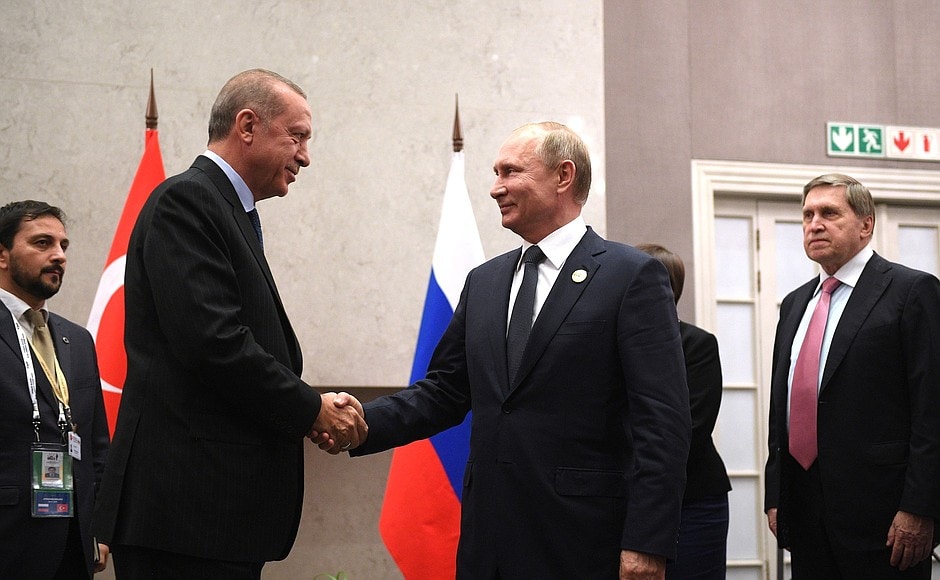
(Source: Kremlin.ru)
Turkey participated at the BRICS Summit under the framework of "BRICS +" initiative, as Chair of the Organization of Islamic Cooperation (OIC).
On the sidelines of the summit, Turkish President Recep Tayyip Erdogan met with Putin. The Turkish media outlet and AKP mouthpiece Yeni Safak wrote:
"The two leaders met … to discuss various issues mainly Syria, bilateral ties, and the upcoming Tehran summit as part of the Astana process. The meeting lasted for 75 minutes. 'Any kind of solidarity between us makes someone jealous,' said Erdogan before the meeting. There has been improvement in all fields including political, military, economic, culture and trade between the countries, Erdogan said.
"Recalling a $100 billon-trade volume target between the two countries he said: 'I believe [...] we will realize this target.' The Turkish president also praised tourism figures between Russia and Turkey, saying: 'I think some 6 million [Russian] tourists will visit Turkey this year.'
"Putin expressed his gratitude over carrying out joint projects with Turkey. 'Our relations will always continue to overcome various crises,' the Russian president said. 'Our relations in the economy will also improve.'
"Putin added: 'I am very happy to meet you.' Erdogan and Putin have spoken over the phone 16 times this year to discuss regional issues, particularly Syria, and bilateral relations."
(Yenisafak.com, July 27, 2018)
The Meat On Putin and Erdogan's Menu
During the meeting, Putin also tackled Turkey's ban on the supply of Russian meat. The ban was imposed in retaliation to Russia's ban on some Turkish agricultural products, after a Russian fighter bomber su-24 was shot down by a Turkish Air Force F-16 fighter jet in November 2015.
Vladimir Putin: "You promised to invite me out to a restaurant."
Recep Tayyip Erdogan: "I am inviting you."
Vladimir Putin: "Yes, but we agreed that we would go when you give our meat products access to your market, when restaurants make meals with Russian meat."
Recep Tayyip Erdogan: "I will be looking forward to your arrival."
Vladimir Putin: "Thank you."
(Kremlin.ru, July 26, 2018)
LDPR Party Leader Zhirinovsky: We Support An Agreement With Turkey, Similar To The One With Belarus
Having been invited to participate in Erdogan's inauguration ceremony in Turkey, Vladimir Zhirinovsky, a leader of the Russian LDPR party said during his stay in Ankara:
"Erdogan is positively disposed towards us. Of course, he wants to have relations with the West – but the West does not want that. Turkey is a Muslim country, while the West has lots of problems with Muslims. Turkey, [in contrast] enjoys mutually profitable relations with Russia. We hope that during Erdogan's new term the relations will be sharply intensified all across the board. Broadened military cooperation is possible. In the future, Turkey may join the Shanghai Cooperation Organization and the Euro-Asian Economic Union. We support an agreement with Turkey – similar to the one with Belarus." [Russia and Belarus are considered to be members of a quasi-confederative structure –based on an agreement dating back to the mid-1990s].
Zhirinovsky also added that if Turkey recognizes Crimea as a part of Russian territory, Russia will reciprocate with regards to Turkish-occupied Northern Cyprus.
(Ria.ru, July 9, 2018)
Read also:
- 'BRICS-T' Summit: We will be present in both the East and the West. Because we are now the country of great claims. (Yenisafak.com, July 25, 2018; read the full article)
Russia-Africa Relations
Russia’s Ministry of Natural Resources and Environment stated that Russian companies Rosneft, Gazprom Neft and Technotec are considering the option to expand cooperation with Sudanese firms.
(Tass.com, July 24, 2018)
Presidential aide Yuri Ushakov said: "Russia is interested in cooperation in the sphere of peaceful use of nuclear energy, including construction of a NPP in South Africa, continued supplies of uranium product to this country, and joint making of isotope products."
(Tass.com, July 24, 2018; read the full article; Read also "South Africa opens door to future Russian nuclear power deal," Timeslive.co.za, July 26, 2018; read the full article)
Russia-US Relations – Putin: I Am Ready To Visit Washington D.C. But The Right Conditions Must Be In Place
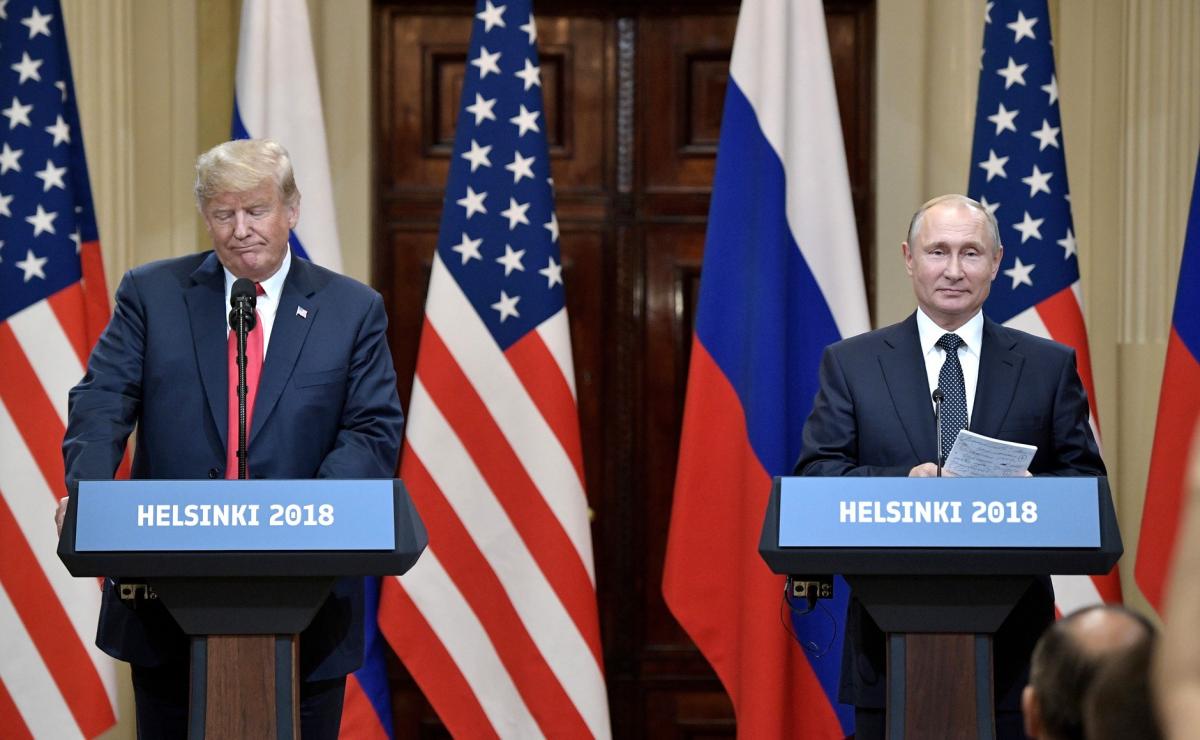
(Source: Kremlin.ru)
During a news conference on the sidelines of the BRICS summit, Putin was asked about US-Russia relations.
Question: "The second part of the question is also related to the US.
"After your Helsinki visit, the US invited you to attend the next summit, suggesting that you meet Donald Trump in Washington later this year. As far as I understand, the US has opted to roll back this meeting until next year. My question is, when do you expect this meeting to take place, and will you accept the invitation? Generally speaking, do you believe that Trump can deliver on his promise to improve Russian-American relations considering that there are so many moves in opposite directions?"
Vladimir Putin: "The fact that President Trump always seeks to deliver on his promises, primarily those he gives to his voters, the American people, is one of his greater assets. By the way, I believe this to be a positive trait of the current president, since more often than not leaders are quick to forget what they promised when heading into the election. This is not the case with Trump. He can be criticized for what he does, as so many do, but it is also clear that he tries to deliver on his campaign promises.
"As for our meetings, I find them useful. Let me reiterate what I have said on a number of occasions: in Helsinki, we discussed matters of vital concern for our countries. For example, the New START Treaty expires in 2021. So will we renew it or not?
"Containing the arms race is something both the United States and Russia are interested in, and the same applies to the rest of the world. In 2021, the New START Treaty will cease to exist unless we initiate negotiations, since we have been unable to resolve some issues that have arisen in the course of the treaty application and implementation.
"There are other problems related, for example, to conflict settlement, including Syria. Yes, we do have working contacts, but this is never enough, since top-level political contact is also essential. We need to accommodate the interests of all states within the region, including Syria, as well as Iran, Israel and Turkey, and many other countries in the region like Jordan, Lebanon, Egypt, etc.
"But will we discuss all this at the top political level or not? Or is this a secondary issue for us? I think that this is not the case. No, this is not a secondary issue, and the same applies to the JCPOA (the Iranian nuclear program). Is this a matter of concern for Iran only, or only for the United States?
"No, it is relevant for a great number of countries and Europe as a whole, and many others. What I mean is that I believe the JCPOA is an effective tool for containing the arms race and the proliferation of weapons of mass destruction. This can be a matter of controversy or a subject of talks, but how can this be carried out when there are no meetings? You cannot settle everything over the phone.
"As for further meetings, I understand what President Trump said. He wants to hold further meetings, and I am ready for this too, but we have to have the right conditions, including in our two countries.
"We are interested in such meetings. We are ready to invite President Trump to Moscow. Incidentally, he has an invitation; I told him about it. I am also ready to visit Washington, D.C. But again, the right conditions must be in place.
"We will generally remain in contact in the near term, including at the venues of various international events, for example, the G20. There are also plans for possible meetings at other international forums. So, despite the difficulties, in this case the domestic political situation in the US, life goes on and our contacts continue."
(Kremlin.ru, July 27, 2018)
News In Brief:
- Liberal Democratic party leader Vladimir Zhirinovsky called for commemorating the anniversary of the execution of Czar Nicholas II and his family by standing and performing the hymn "God Preserve the Czar". Deputies from his party had previously recommended that this hymn should replace the national anthem of the Russian Federation. Zhirinovsky resents the fact that there is not a single memorial in the country and promises that monuments will be erected to him to Czar Alexander III and to Ivan the Terrible. (Mk.ru, July 17, 2018)
- Putin joined a religious procession in Moscow marking the 1030th anniversary to the Christianization of Kievan Rus. (Interfax-religion.com, July 28, 2018; read the full article)
- Putin sees the Christianization of Kievan Rus as the start of Russia's statehood. (Interfax-religion.com, July 28, 2018; read the full article)
- Patriarch Kirill praises Ukrainian Orthodox Christians for staying loyal to Russian Church before 1,030th anniversary of Christianization of Rus. (Interfax-religion.com, July 27, 2018; read the full article)
- On July 11, Russian Minister of Defense gave an interview to the Italian newspaper Il Giornale. In the interview Shoigu said: "We believe that the [US-Russia] tensions have been artificially fueled by the American élite, who are convinced that the world is divided into the 'American' part and the 'wrong' part." (Ilgiornale, July 11, 2018; read the full interview in Italian; read the full interview in Russian).


